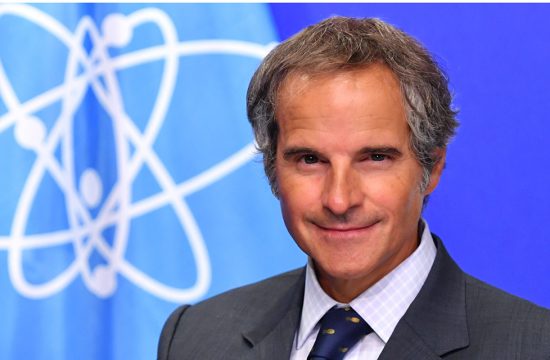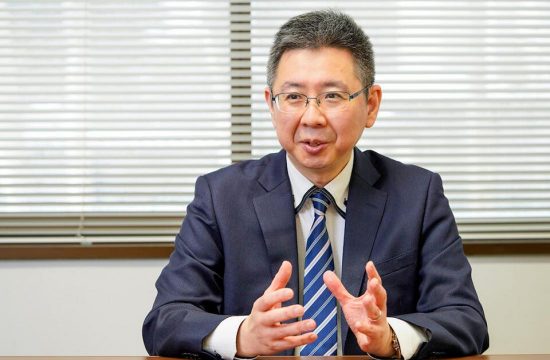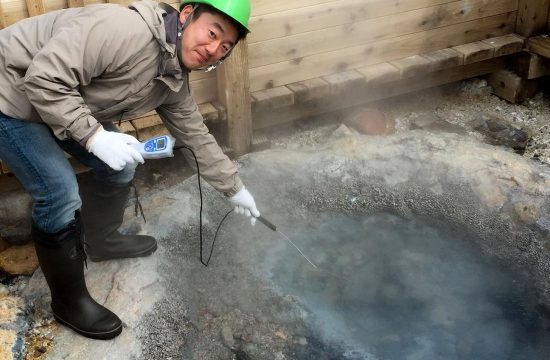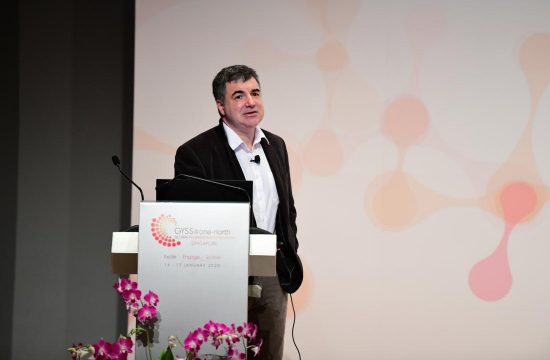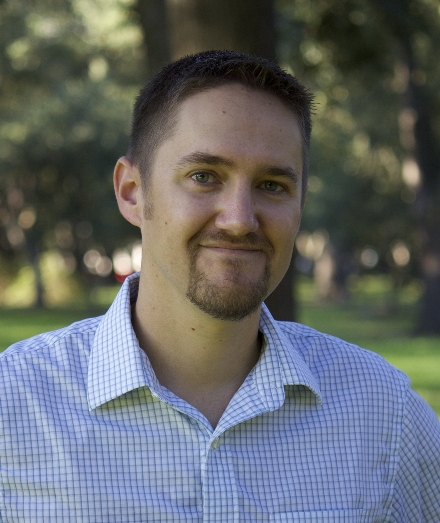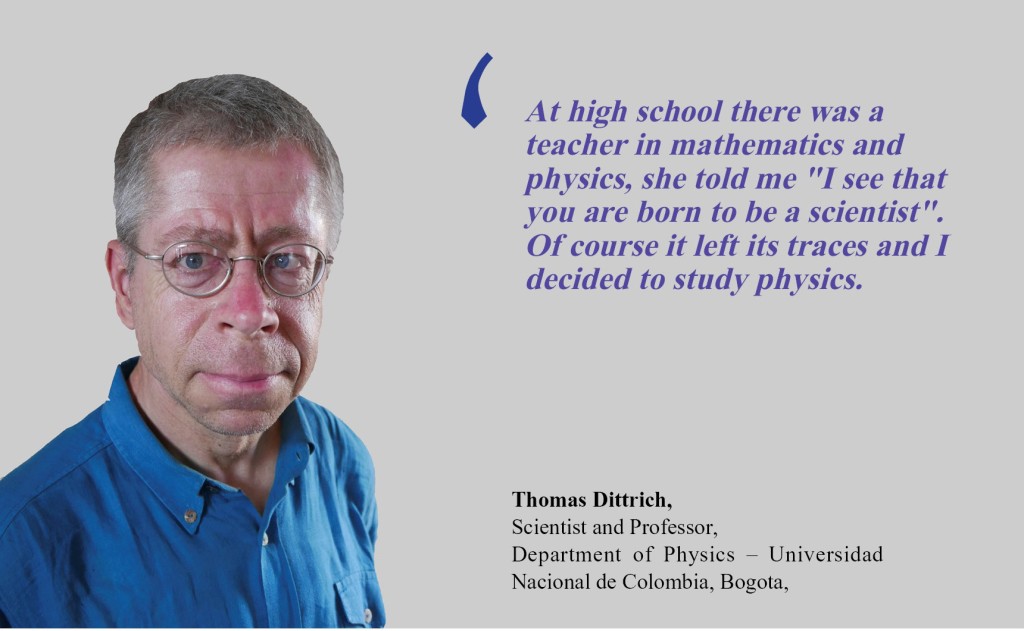
Thomas Dittrich, [59], Scientist and Professor, at the Department of Physics – Universidad Nacional de Colombia, Bogota, was born in Hamburg, Germany. He got his masters in physics at the University of Hamburg and his PhD from the University of Essen in Germany. Subsequently, he went to the Weizmann Institute, Israel, a research centre comprising departments of physics, Mathematics, Biology, etc. He returned to Germany after two years of working experience at the Weizmann Institute. He spent six years at the University of Augsburg to get the habilitation, which is considered a second, more advanced, and substantial PhD and is a prerequisite to enter an academic career. The research he carried out played a vital role in getting a permanent position as a professor. It was his foremost objective, he said. He has published 70-plus scientific articles in Physical Review Letters, Physical Review A, E, Physica A, B, E, Journal of Physics A, C, Journal of Statistical Physics, Europhysics Letters, European Journal of Physics, Revista Colombiana de Física, etc.
As a senior scientist, in the course of his research, he came to visit Nepal. During his visit, Laxman Dangol, Editor of RevoScience Monthly Magazine, conducted this interview.
What is the main purpose of visiting Nepal?
I had a research project that included a PhD fellowship. I offered it to students in Colombia, but they all preferred other positions elsewhere, so at the end, I decided to advertise the position on some international internet platform. After announcing it, I received several applications. Among the applicants, there was a Nepalese named Suraj Acharya. He had obtained his master’s from Tribhuvan University. After many difficulties, he finally came to Colombia. He passed the exam, which he had to undergo in Spanish, before being admitted to the PhD program of our university. After he returned to Nepal, we still kept in contact, and I had told him that if I got any chance to visit him in Nepal, then surely I would do so. Right now I am in a research semester, so I thought there could be no better chance to realize this plan. This is why I am here to visit the Central Department of Physics and other academic institutions in Nepal.
After visiting academic institutions, what do you think about the education system in science and technology in Nepal?
Well, of course, I tend to compare with Germany and Colombia. Maybe it is not fair to compare Nepal’s education system with Germany’s because Germany is so far ahead; the more appropriate comparison is to Colombia. It is interesting also because Colombia, in a way, has much in common with Nepal. It is a developing country with high mountains and tropical lowlands. Besides that, it has a similar political history, and Colombian institutions of higher education have to struggle with many difficulties related to the political conflicts. With important improvements in recent years, they are advancing quite substantially, which is something that I enjoyed observing.
Now I have the feeling that the general conditions at our university are getting better. In both countries, Colombia and Nepal, I perceive the same interest and enthusiasm for science, from the side of students, too. Right now, probably students in Colombia are a little better off than here, since economic conditions are certainly more favorable than in Nepal. Otherwise, these are two developing countries that need much more effort on both sides to promote science.
I hope that Nepali scientists are sufficiently patriotic to be proud of returning to Nepal and bringing their country forward in science. This is a very important point
What kind of PhD students do your universities seek for?
Actually, we can offer PhDs in many areas such as science, engineering, social sciences, and many others. If any students from Nepal are interested in doing their PhD in Colombia, then the only major obstacle they have to surmount is the language, as the official language of Colombia is Spanish, not English. So even if Nepalese students are good at English, they still need to learn this language. If they already come from Nepal with some knowledge of Spanish, that is, of course, preferable; otherwise, the university also offers Spanish courses. There are elementary and advanced courses for foreign students so that they can learn the language in Colombia.
Apart from the language, what are the criteria for accepting students in PhD courses?
We have several universities in Colombia. All these universities have admission exams where students interested in postgraduate programs have to present themselves. And the students must have sufficient knowledge about the subjects that they have done their masters in, at least in one or two or three specific areas. For example, if a student has done a master’s in Elementary Particle Physics, he/she should be very firm in this subject. Students are more preferred for a PhD in Colombia if they have already completed a thesis in a related area, so that the professor who is supervising the PhD will not lose time teaching any elementary or introductory knowledge to them. Instead, that professor can rely on the students so that they can start doing competitive research in the field they have chosen.
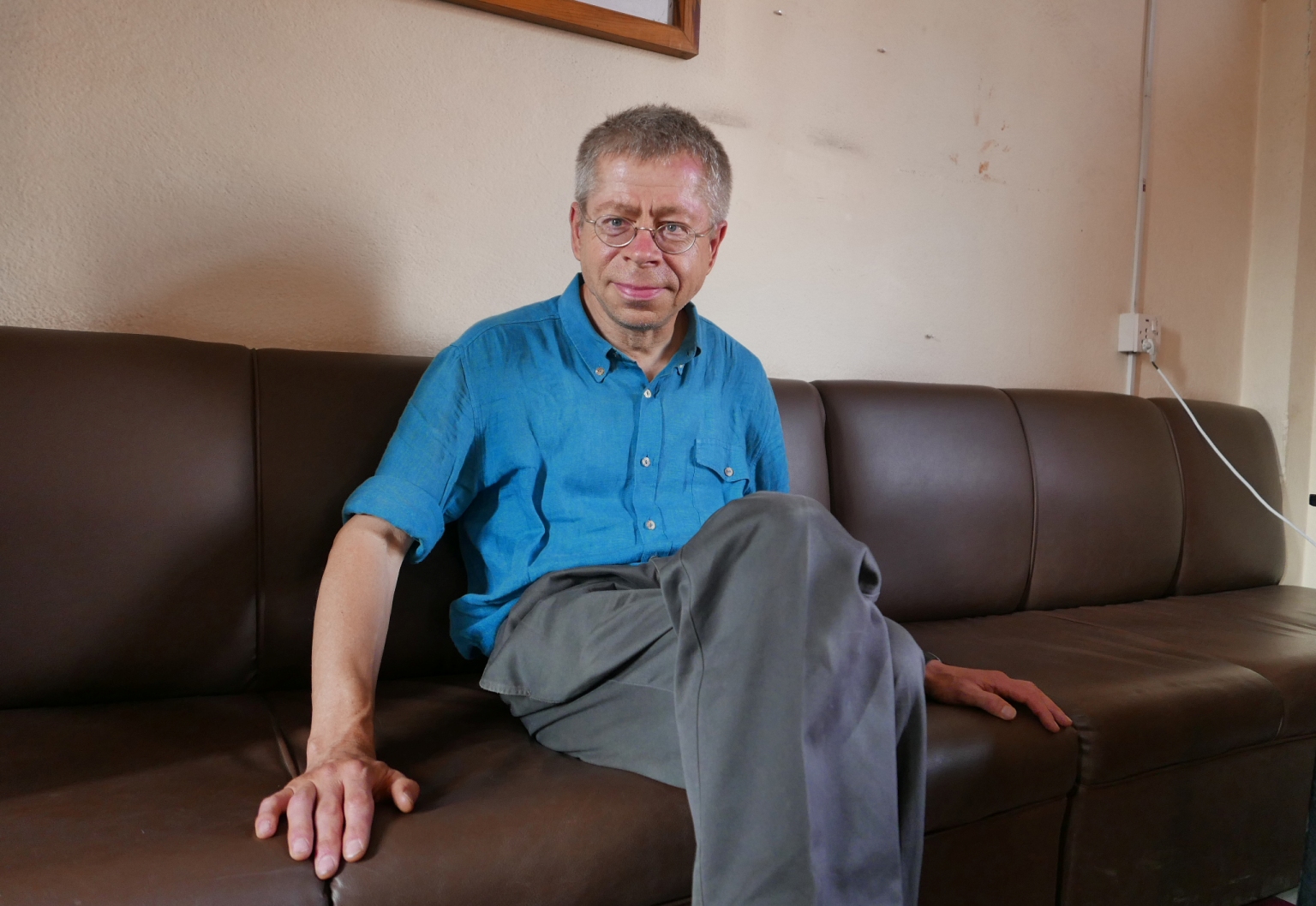
How about a student exchange plan between Colombia and Nepal?
I have not talked to any officials till now. But our university has conventions with numerous institutions of higher education in Germany, Mexico, the United States, and many other countries, and our Office for International Relations is always looking forward to signing specific agreements with universities abroad. I think, since both of these countries have so much in common, it will be very attractive to consider such a negotiation. Furthermore, the National University in Colombia and Tribhuvan University in Nepal are very comparable: Both of them are public universities on the national level—through some discussion we could formulate and sign a convention between these two universities, so that students from Nepal will have privileged access to our university in postgraduate programs and vice versa.
How was your talk with the professors of Tribhuvan University about PhD programs?
Well, actually, we did not discuss for very long. It was a very informal meeting. There was a practical difficulty in the sense that I am here for only a week, and precisely this week, PhD exams are running in Pokhara, so that almost all of the physics professors are there to participate as supervisors in these exams and I couldn’t meet all of them. It was a kind of unfortunate coincidence, but I hope that in the future, something can be done and contacts can be intensified.
As a scientist, do you have any future plans to do any scientific collaboration with Tribhuvan University or NAST in Nepal?
I would be very interested; it would be great if such an opportunity occurred. To talk about myself, I am now 59 years old and the retirement age at Colombia University is 65, so I still have 6 years to work. Nevertheless, I accept students to do their PhD with me. Otherwise, I would be very glad to help and to mediate in any kind of collaboration between these two universities. I am very fond of South-South development help. There are lots of advantages if developing countries try to exchange their experiences with each other and try to help each other, because both of them lie on the same level and can communicate and negotiate as equivalent partners.
Besides this, may I ask you why you chose science? Why didn’t you choose another subject?
Well, for several reasons. Neither of my parents was a scientist, my father is an artist—graphic designer—and my mother is an elementary school teacher, but they are both interested in science. When we were having breakfast together, they used to discuss science, and I listened to them carefully. I got very curious about their conversation, and it fascinated me. At school, I was more or less at the same level in humanities, arts, and science. But in high school, we had a teacher in mathematics and physics, who told me, “I see that you are born to be a scientist”. Of course, it left its traces, and I decided to study physics. But initially, before getting to the university, I was divided between mathematics and physics. I had already participated in a competition in mathematics and had won a prize, so mathematics was also attractive for me. At that time, I was fascinated by biology as well, but in the end, I decided to choose physics. Physics had advantages for me as it has lots of mathematics involved in it, which I can do at the level I would like to do it. At the same time, there are numerous applications of physics to biology; therefore, physics was like a compromise to me: From physics, you have access to all the sciences.
You mean, physics plays a central role in science?
I think within science, physics is like a spider sitting in the middle of its net, from where it has access to go anywhere and this is one of the features that fascinated me about physics.
I think science is maybe the only enterprise where all humankind is participating. There are Americans, Nepalese, Russians, Africans, and Colombians doing science, while so many conflicts are going on throughout the world. Nations are fighting against one another, hating and killing each other in the name of religion and nationalism, while in science, we are mostly collaborating peacefully. Where other things are moving forward and backward, science is the only field that is permanently progressing, maybe slowly but steadily. In science, everyone can participate in constructive work, and it is this that attracts me so much.
What kind of expectations from the Nepalese students and professors?
First of all, I was very curious. Seen from Europe or from further away, like Colombia, the distance between India and Nepal is not large. Nepal is a small neighboring country of India. In physical terms, one would say that to first approximation, Nepal is like India. And therefore, I was particularly curious to know where Nepal is actually different from its big neighbor. Well, perceiving all details, I learned that Nepali culture is quite distinct from Indian culture. And I think the Nepalese are very proud of it. This short week visit was very helpful to me to see all these rich traditions, in language, in music, in cuisine, in costume, which are so different from India and, of course, also from China, as these are the two dominating neighbors of Nepal. It was really enlightening to understand these specific characteristics. I hope that, if Nepali researchers and students come to Colombia, they will also contribute to bringing the beauty of their culture to a distant continent like South America.
What kind of things are really necessary to establish a science culture?
I do not see where there would be any specific difficulty in this country. What I see is a lot of enthusiasm about science, particularly among professors and students.
I think the foremost necessity is to convince, as far as possible, Nepali scientists who have been abroad in America or elsewhere to return to Nepal. It’s extremely important to bring the advanced knowledge they acquired in more developed countries back to their home country.
I hope that Nepali scientists are sufficiently patriotic to be proud of returning to Nepal and bringing their country forward in science. This is a very important point.
As a scientist, do you believe in God?
My plain answer is NO. My family roots are Christian, and I grew up in this tradition. And as I have already said, from my childhood on, I was also attracted to science. Very early, I had the impression that religion and science are competing ways to see the world, and I decided on the latter.


